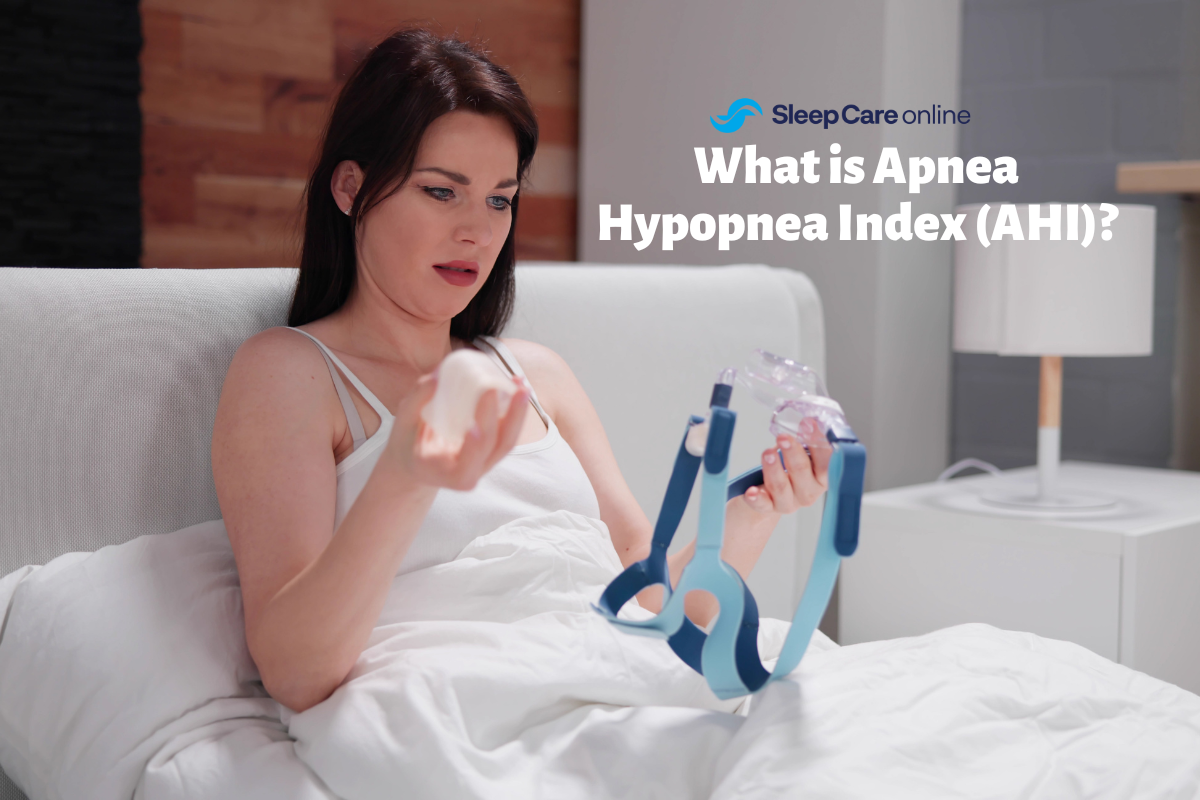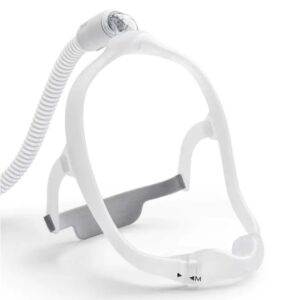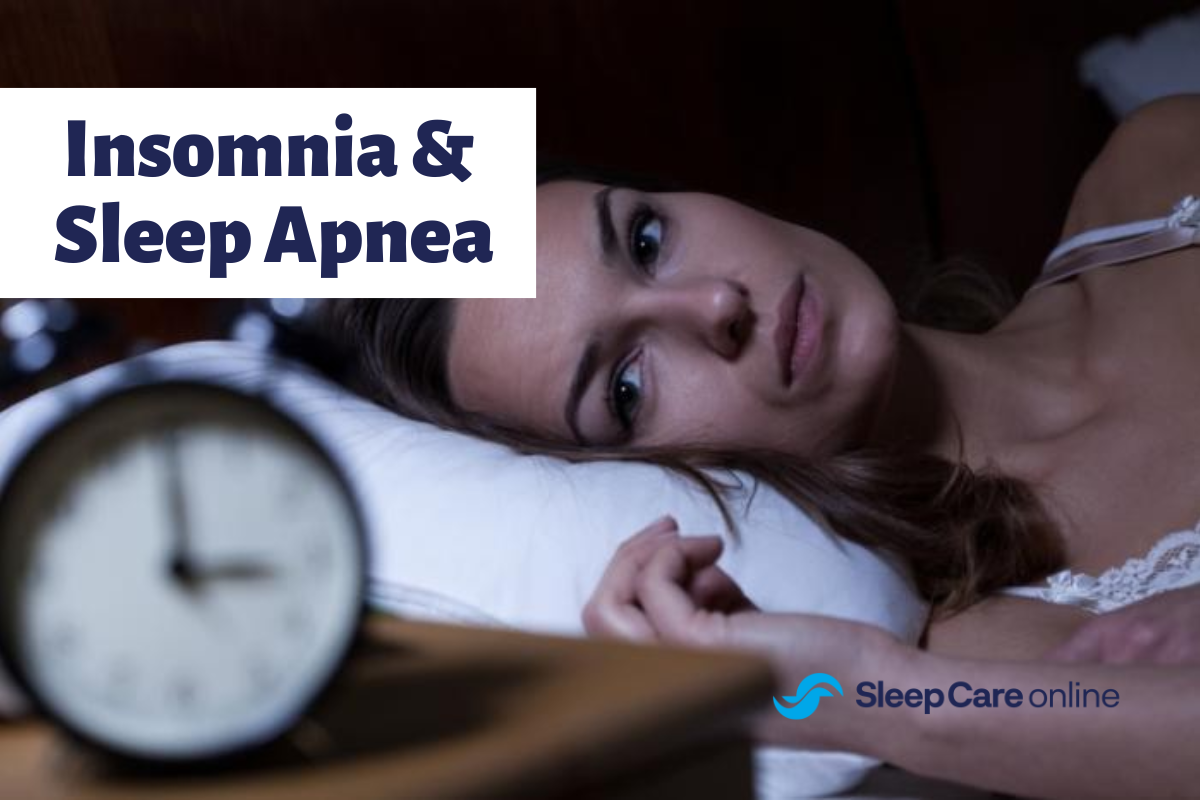AHI, or apnea hypopnea index, determines the number of apneas you experience per hour while you sleep. You may also know this as the number of “events” per hour if you have sleep apnea. The AHI is a guide by sleep doctors use to measure the severity of your sleep apnea. Your AHI will ultimately determine the pressure settings on your CPAP machine to minimize the frequency of apnea episodes.
Even when you are fully compliant with your CPAP therapy, you may notice over time that the frequency of your apneas could increase. This can be frustrating when you have done all that you can to control your sleep apnea. Understanding your AHI can you help more effectively manage your sleep apnea for improved CPAP compliance.
What Does Apnea Hypopnea Index Represent?
The AHI captures the number of incidents when your breathing pauses while you sleep and also the frequency of periods of shallow breathing. These numbers added up to determine the severity of your sleep apnea. A higher apnea hypopnea index number means that you are not achieving the deep sleep necessary for good health. Using a CPAP machine that measures sleep data with an app is the best way to monitor your AHI.
What Is a Normal Apnea Hypopnea Index?
- An AHI reading under 5 is normal. That means you experience fewer than five apnea events per hour
- A reading of 5-15 apnea events indicates mild sleep apnea
- A reading of 15-30 indicates moderate sleep apnea
- A reading of 30 or more events per hour indicates severe sleep apnea
Keeping the number of sleep apnea events per night to a minimum means that your CPAP therapy is working, and you are getting the sleep you need.
What Is the Goal of Monitoring the Apnea Hypopnea Index During CPAP Treatment?
The goal of regular AHI monitoring is to ensure that your CPAP therapy is effective. While minor fluctuations in your AHI is normal, a consistent increase in the number of apnea events per hour is not. Speak to your sleep doctor about adjusting your pressure settings on your CPAP machine. There are also other ways to help bring down the number of events through adjustments to sleeping behavior and changes to equipment.
How Can I Improve My Apnea Hypopnea Index Score?
Change Your Sleeping Position
By changing your sleeping position, preferably by not sleeping on your back, you can bring down your AHI without changing pressure settings or equipment. Sleep Care Online recommends trying to sleep on your side as much as possible since this sleep position reduces snoring and also encourages blood flow.
Replace Your Mask Cushion and Headgear
Older worn out mask cushions and headgear may be to blame for a higher AHI. Make sure to clean and maintain your equipment properly. Additionally, follow your manufacturer’s recommendations for replacing headgear and mask cushions. It is most common to replace CPAP cushions monthly, and headgear every 6 months.
Replace Your CPAP Mask
Just like your headgear and mask cushions, your CPAP mask eventually begins to grow old and potentially leak. After a while, buying a new CPAP mask altogether will be the most beneficial for your CPAP therapy. The average lifespan of a mask is about 6 to 12 months. Follow manufacturer guidelines for CPAP mask replacement.
How Do Doctors Use the Apnea Hypopnea Index?
When first undergoing a sleep apnea test, the apnea hypopnea index will determine the presence and severity of obstructive sleep apnea. With symptoms like snoring, you may suspect sleep apnea, but an absence of any sleep apnea events may indicate you are still getting healthy sleep.
If sleep apnea events are detected during the testing, sleep technicians can determine the severity of your sleep apnea. This will then help doctors establish treatments including settings for CPAP equipment.
Do Sleep Labs Measure the Apnea Hypopnea Index?
Sleep labs will use the apnea hypopnea index along with other tests to determine the severity of sleep apnea. Tests like the respiratory disturbance index (RDI) are also used to count the number of respiratory disturbances during sleep. Blood oxygen saturation is also used to see how often blood oxygen levels drop during a night’s sleep.
Sleep labs use the results from all the tests to define the patient’s OSA severity so that they can prescribe proper treatment. Test results will also help sleep doctors determine pressure settings on CPAP machines.
What is 4.9 on a Home Sleep Apnea Test?
Home sleep apnea tests are also a way to measure the apnea hypopnea index. A home user will only submit the results to a sleep doctor and may not immediately see their AHI score. During the follow-up consultation, the doctor will reveal that score. If the AHI is 4.9, which is considered below the normal frequency of sleep apnea events, the conclusion may be that you do not have the sleep disorder. Less than five sleep apnea events an hour indicates normal sleep.
Does Radiation for Prostate Cancer Increase your Apnea Hypopnea Index on a CPAP Machine?
Some studies have demonstrated an increased risk of prostate cancer in patients with obstructive sleep apnea. However, the relationship is unclear, and the results are conflicting. Other studies have shown that radiation treatment may also have an effect on the AHI index and aggravate sleep apnea symptoms.
With radiation treatment, normal sleep is commonly affected and a patient with prostate cancer undergoing radiotherapy who also has OSA may experience an elevation in their apnea hypopnea index.
Conclusion
Understanding your sleep is the first step toward determining if you have a sleep disorder like sleep apnea. Getting a home diagnosis is easy.
Here’s how it works:
- With the Complete Care Package, schedule a 10-minute telehealth visit with a healthcare provider to discuss your symptoms, upcoming sleep study, test results, and treatment options.
- A multi-night, disposable home sleep apnea test is mailed to your home to be completed at your convenience.
- A physician analyzes the sleep data and provides a prescription if needed.
- Schedule an optional follow-up appointment (additional fee applies).
- We connect you to sleep experts who can offer customized sleep therapy options, assistance in equipment purchase, and initial set-up.
If you have any additional questions or would like to learn more about Sleep Care Online, give us a call at 866-465-4478.





